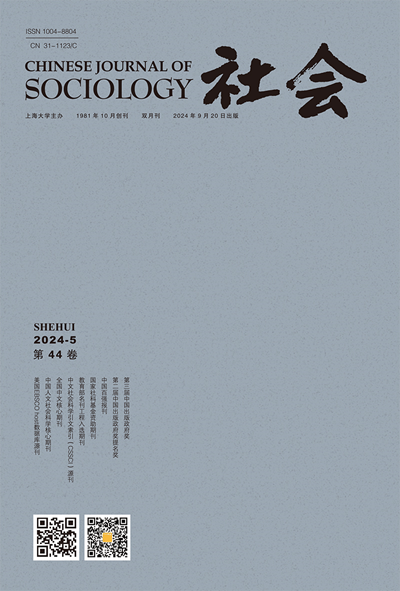中国性行为研究综述与新发现
IF 1.8
4区 社会学
Q2 SOCIOLOGY
引用次数: 6
摘要
在过去的四十年里,中国的性研究取得了长足的进步。从历史和社会学的角度,我们的研究回顾了文献,并利用我们最近收集的调查数据,对当代中国的性行为进行了全面的概述。首先,我们介绍了中国古代和现代的性,并讨论了引发中国性革命的社会背景。其次,我们简要回顾了中国性行为的实证研究。最后,我们根据我们的调查——2020年中国私人生活调查——介绍了性态度和性行为的近期变化和社会经济模式的结果。一项队列分析显示,中国的性态度变得更加自由,性行为更早,性活动更加多样化。然而,令人惊讶的是,我们发现性行为在年轻群体中的吸引力似乎有所减弱,他们的性频率比以前的群体更低。此外,我们还发现,与性活跃度和多样性相关的教育梯度发生了逆转。在1980年之前出生的人中,受过高等教育的中国人性行为更活跃,而在1980年之后出生的人当中,受教育程度较低的人性行为更加活跃,包括与伴侣的性行为、在网上寻找性伴侣以及从事商业性行为。与女性相比,男性的性健康水平更高。本文章由计算机程序翻译,如有差异,请以英文原文为准。
Sexuality in China: A review and new findings
In the past four decades, sexuality research in China has made considerable advancements. From historical and sociological perspectives, our study reviews the literature and provides a comprehensive overview of sexuality in contemporary China by drawing on recent survey data that we collected. First, we introduce sexuality in ancient and modern China and discuss the social contexts that gave rise to a sexual revolution in China. Second, we briefly review empirical research on sexuality in China. Finally, we present results on recent changes and socioeconomic patterns of sexual attitudes and behaviors based on our survey—the 2020 Chinese Private Life Survey. A cohort analysis reveals that sexual attitudes have become more liberal in China, with an earlier sex debut and more diverse sexual activities. Surprisingly, however, we find that sexuality seems to have diminished in its appeal among young cohorts, who have lower rates of sexual frequency than preceding cohorts. In addition, we find a reversal in educational gradient in relation to sexual activeness and diversity. Among those born before 1980, highly educated Chinese are more sexually active, while among those born after 1980 the lower educated are more sexually active—in terms of their sexual activity with their partners, seeking out sexual partners online, and engaging in commercial sex. Compared with women, men have higher levels of sexual well-being.
求助全文
通过发布文献求助,成功后即可免费获取论文全文。
去求助
来源期刊

社会
Social Sciences-Social Sciences (all)
CiteScore
1.70
自引率
0.00%
发文量
6799
期刊介绍:
The Chinese Journal of Sociology is a peer reviewed, international journal with the following standards: 1. The purpose of the Journal is to publish (in the English language) articles, reviews and scholarly comment which have been judged worthy of publication by appropriate specialists and accepted by the University on studies relating to sociology. 2. The Journal will be international in the sense that it will seek, wherever possible, to publish material from authors with an international reputation and articles that are of interest to an international audience. 3. In pursuit of the above the journal shall: (i) draw on and include high quality work from the international community . The Journal shall include work representing the major areas of interest in sociology. (ii) avoid bias in favour of the interests of particular schools or directions of research or particular political or narrow disciplinary objectives to the exclusion of others; (iii) ensure that articles are written in a terminology and style which makes them intelligible, not merely within the context of a particular discipline or abstract mode, but across the domain of relevant disciplines.
 求助内容:
求助内容: 应助结果提醒方式:
应助结果提醒方式:


